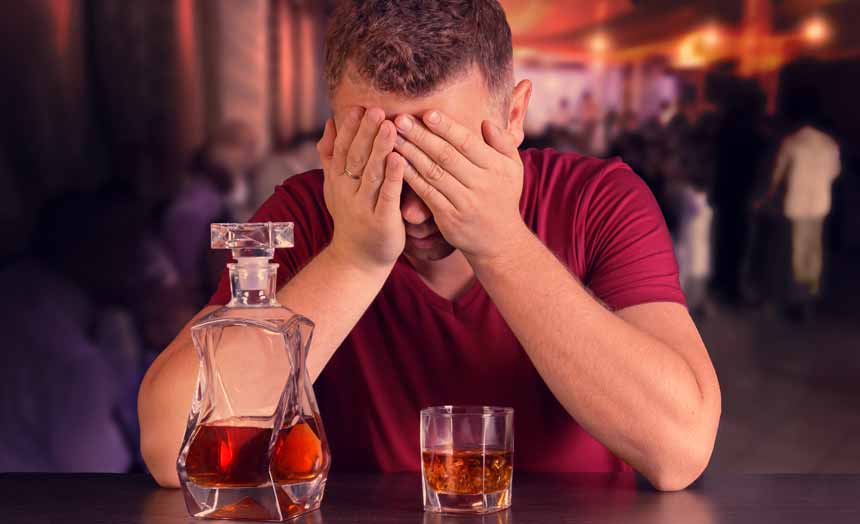Alcohol detox is one of the most painful forms of detox that exist among people suffering from substance use disorders. The side effects associated with alcohol detox at home are dangerous and even life-threatening in certain cases.
It’s recommended that addicts participate in medically assisted detox whenever possible. However, sometimes, this isn’t a feasible option for clients seeking sobriety for various reasons.
If you can’t contract the services of medical professionals and house calls aren’t available, it’s important to understand the risks of alcohol withdrawals and detox at home. You should take several important measures to ensure safety and ease the pain as much as possible.
If you or someone you know is considering an alcohol detox at home, this article can help prepare you. Continue reading for a comprehensive guide regarding alcohol detox at home and how to plan for success.
Reasons for Alcohol Withdrawal at Home
Individuals choose alcohol detox at home for multiple reasons. There are different motivations involved depending on the user and the reasons surrounding this decision. These are some of the most common reasons for alcohol withdrawal at home:
- The individual may not be able to pay for a medically assisted detox
- There may be obligations they can’t breach to attend a detox program
- Sometimes individuals consider home the most comfortable place to detox
Regardless of the reason, there are significant risks of alcohol withdrawal at home you need to be aware of. The following section outlines the risks of alcohol withdrawal at home and how you can prepare.
Risks of Alcohol Withdrawal at Home
There are significant risks of alcohol withdrawal at home, and it’s important to be aware of the potential side effects. The following list contains the most dangerous risks of alcohol withdrawal at home:
- The body has an intense reaction during alcohol withdrawal. Users experience several withdrawal symptoms like nausea, vomiting, tremors, headaches, and insomnia.
- Users may experience hallucinations.
- In severe cases, users detoxing may experience seizures.
- One of the most dangerous risks associated with alcohol withdrawal at home is heart failure.
Many people don’t take alcohol withdrawal as seriously as other drugs. However, there are cases where fatalities are involved with alcohol detox.
Can You Die from Alcohol Withdrawal?
Even though it’s rare, alcohol withdrawal can result in death. These are the most common causes of death during alcohol detox.
- Seizures may result in death during alcohol detox. These events can lead to choking, aspiration, and severe physical injuries during a seizure.
- Delerium Tremens, otherwise known as “DTs,” cause intense symptoms during alcohol withdrawal. These symptoms include confusion, disorientation, stroke, and heart attack.
Individuals may lower the risk of severe side effects and tragic outcomes by taking precautions for alcohol detox. Use the following section as a guideline for preparing for withdrawal.
Precautions for Alcohol Detox

Planning your at-home detox from alcohol is important for emerging successful on the other side. Knowing what to expect during alcohol detox is only half of the battle. Taking precautions for alcohol detox is the other half.
You should never ignore the importance of diet for alcohol detox. There are several preparations users can make to increase the chances of safe alcohol detox at home.
Use the following list for planning your at-home detox from alcohol.
Planning Your At Home Detox from Alcohol
Use the following outline to craft a plan during your detox at home.
- Remove all alcohol from your home. This is an extremely important step before beginning your detox. If any alcohol is present throughout the home, you may be tempted to have a drink to ease withdrawal symptoms. This is one of the easiest ways to fail in your detox attempt.
- Make time for your detox period. Don’t plan on working or doing anything important or strenuous. You should clear your schedule for anywhere from a few days to a full week. To be safe, consider clearing everything for at least the whole week if possible.
- Make sure you have plenty of support and people to check on you. There should be ample physical and mental encouragement during the detox period. You may need help physically, especially if your medical condition deteriorates. Having mental support will help you to stick to your guns and stay the course.
- It’s important to remain hydrated during detox. You will lose a lot of vital liquids through vomiting and diarrhea. This can easily lead to dehydration which can be hazardous to your health and cause other negative symptoms. Drink plenty of water, juice, and Gatorade during withdrawal to prevent dehydration.
- You may have a significant loss of appetite, but it’s important to stick to a balanced diet. Fruits and vegetables may help you maintain your strength and relieve certain symptoms. You should also be mindful of ingesting lean proteins and sources of calcium as well.
- It’s important to maintain a regimen of vitamins and minerals. Many of these substances help during the detox process and relieve symptoms like cramping and muscle aches. Purchase vitamins from the pharmacy before your detox. Things like Vitamin B, Vitamin C, and calcium can provide much-needed relief.
You should also look into an alcohol taper schedule. This can significantly reduce the intense symptoms of withdrawal by slowly lowering the amount of alcohol you ingest. Depending on your level of consumption, developing an alcohol taper schedule with your physician can be extremely helpful.
You should also be mindful of comfort and control of risks for alcohol detox. Besides the preparations listed above, you may also find relief in the following:
- Sleep aids like Tylenol PM or Melatonin may provide relief during withdrawal.
- Certain substances like chamomile and other calm-inducing natural substances can reduce anxiety and tremors.
- Keep over-the-counter pain relievers on hand to reduce the aches associated with detox. It’s never a bad idea to keep baby aspirin close in case of a heart-related event.
Because of these risks, there are significant benefits of medically supervised detox. Before deciding on alcohol detox at home, you should consider the pros of a medical detox program.
Benefits of Medically Supervised Detox
A health professional around the clock monitors you at a medical detox program. This can lower your risk of adverse health conditions, as doctors and nurses provide relief during the most intense periods. The following list contains the most significant benefits of medically supervised detox.
- Around-the-clock care of doctors and nurses who can monitor your vitals and ensure no emergencies occur.
- These professionals are trained in administering remedies and other medications to provide comfort and safety.
- Doctors may prescribe muscle relaxers and benzos to assist during the withdrawal process.
Benzos can provide temporary relief during withdrawal. These aren’t permanent solutions, but they will ease anxiety, restlessness, and insomnia during the most intense withdrawal period. Because of their calming effect, these drastically decrease your chances of stroke and heart attack.
It’s important to note you should never self-medicate with prescription drugs during detox at home. Alcohol can have negative interactions with certain substances, and medical professionals administer certain prescriptions during withdrawal.
Regardless of the method of detox, supporting long-term sobriety after detox is important. This support can be obtained and manifested in several different ways.
Supporting Long Term Sobriety After Detox

Inpatient rehabilitation facilities, outpatient treatment programs, and other treatment options are the most effective way for supporting long-term sobriety after detox. One of the most significant benefits of these programs is dual diagnosis.
Many alcoholics suffer from underlying conditions that lead to their addiction. These include several mental health conditions or past physical and mental trauma. Additionally, other addictions may exist with alcoholism that needs treatment.
All of the programs mentioned above provide counselors and psychiatrists that specialize in co-occurring addictions and dual diagnosis. Without treating other addictions and underlying causes, the chances of long-term recovery are slim to none.
Another important recovery dynamic is engaging in continuing treatment and education after rehabilitation. There are several options for continuing recovery after graduating from a treatment program.
The 12 Steps and Alcohol Detox Assistance
12-step support groups for alcohol are one of the most effective ways to continue recovery. Most cities and towns have some form of Alcoholics Anonymous or some other 12-step recovery meeting options. Your rehabilitation facility, primary care physician, or counselor should have information regarding these meetings.
Additionally, information can normally be obtained online regarding the locations and times of these meetings. Addicts in recovery must continue to attend meetings and engage with peers and other recovering addicts to continue to promote sobriety.
Maintaining continuing mental health treatment is important as well. Regular sessions with therapists or counselors shouldn’t cease just because someone is in recovery.
Finally, anyone suffering should always reach out for further resources. Your doctor and sponsors at 12-step recovery groups normally always have additional information regarding recovery and additional information regarding sobriety.
Through attention to all of the elements mentioned above and the existence of a strong support system, even the most severe cases can be success stories. The chances of success during recovery are only equal to the strength of an addict’s will. If you want sobriety bad enough and can picture continuous recovery, you can easily make it a reality.
For those in need of additional assistance, or who want the safety and reassurance of medically supervised detox are encouraged to reach out today to the team at Circle of Hope. We’ve guided clients through severe alcohol withdrawals safely and effectively, helping establish meaningful and lasting sobriety for even the most difficult cases. Reach out now to speak with our compassionate Admissions team to get started!
FAQs About Alcohol Detox at Home
Is It Possible to Detox from Alcohol at Home?
While it is possible to detox from alcohol at home, it takes a strict preparation regimen and being aware of the risks to succeed. It should be noted that there are higher risks involved with detoxing from alcohol at home. Without trained medical staff present, the risk of suffering negative side effects from withdrawal is much higher.
Because of a lack of medical professionals to administer medications for comfort, relapse is a likely outcome during this detox. Research shows that an alcoholics’ chances of successfully completing detox are much higher when this is done in a medically supervised setting.
Can Alcohol Detox Kill You?
There have been rare cases reported that involve death from alcohol detox. While the act of detoxing itself may not be deadly, the symptoms caused by the detox are what can be fatal. Negative side effects of DTs can be lethal and stroke, seizure, and heart attack.
Can You Detox At Home Alone?
Detoxing at home alone is not recommended for any alcoholic in recovery. There are several reasons for this. Number one, there needs to be a strong mental support system available during the withdrawal period. Encouragement is needed to keep a user positive throughout the recovery period, and remaining on your own may increase feelings of depression and anxiety. Second, the physical risks involved may be even more important.
If someone is alone during detox and suffers from a seizure, heart attack, or stroke, the chances of fatality are much higher because nobody can care for them or call 911. It is VITAL that someone remain present with an individual going through detox from alcohol. If nobody is available during the detox period, individuals should highly consider participating in a medically assisted detox at an inpatient rehabilitation facility. This could be a lifesaving choice in the end.
Can You Get Prescriptions for At Home Detox?
You should always consult your physician before participating in an at-home detox. Additionally, they can prescribe and guide you on the use of any prescription medications during this period. Never take prescriptions unless they are given to you by your doctor. Besides being illegal, this can be incredibly dangerous if you’re not aware of the potential for side effects during withdrawal.
Although some doctors may prescribe medication temporarily for at-home detox, the chances are slim. Most doctors will recommend inpatient detox for medical purposes. Additionally, most doctors won’t want to be responsible for any adverse occurrences during detox at home. Again, you should always consult with a physician regarding your physical capabilities pertaining to at-home detox. Doctors will check your vitals and make a determination about how healthy you are and if you’re able to make it through the strenuous process of withdrawal. However, don’t be surprised if the doctor is firm about a medically assisted detox. Reach out to our team at Circle of Hope if your doctor (or your loved ones) have recommended medical detox and top-quality treatment services for alcohol detox, we are ready and waiting to craft your personalized plan of recovery, so call now and get started on your path to sobriety today!

